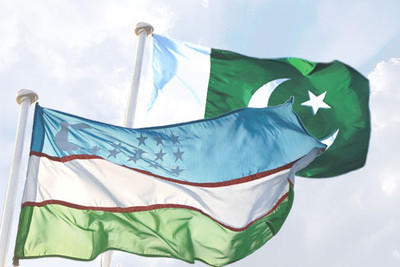Uzbekistan aims to elevate its bilateral trade with Pakistan to $1 billion in the coming years, according to Uzbek Ambassador Alisher Tukhtaev.
Speaking at a meeting at the Karachi Chamber of Commerce and Industry (KCCI), the ambassador emphasized the steady growth in mutual trade, which increased from $122 million in 2019 to $387 million in 2023.
The meeting, attended by Economic and Trade Counsellor Bakhrom Yusupov, KCCI President Muhammad Jawed Bilwani, and other key representatives, discussed strategies to enhance economic cooperation between the two nations.
Ambassador Tukhtaev highlighted recent advancements, including the launch of direct flights between Tashkent and Lahore, and plans to initiate direct flights from Karachi to Uzbekistan this year. He also noted a simplified visa regime for Pakistani citizens, covering business and tourism, to foster stronger connections between the two countries.
“Uzbekistan and Pakistan share a long history of brotherly relations, strengthened by cultural and religious affinities. Our current efforts aim to realize the vision of regional connectivity and deepen economic cooperation,” said the ambassador.
He invited Pakistani investors to explore Uzbekistan’s opportunities in sectors such as textiles, pharmaceuticals, leather, food processing, and agriculture. Tukhtaev urged the KCCI to send a business delegation to Uzbekistan to identify and capitalize on investment opportunities in key regions.
KCCI President Jawed Bilwani welcomed the ambassador and reiterated the deep-rooted historical and cultural ties between Pakistan and Uzbekistan. He stressed the importance of diversifying trade and fostering economic cooperation to strengthen bilateral relations.
Bilwani suggested joint ventures in agriculture, focusing on food processing, storage facilities, and livestock development. He also highlighted the potential for collaboration in research and development to produce high-yield, disease-resistant cotton varieties, which could benefit both cotton-growing nations.
The KCCI president proposed expanding cooperation in sectors like transportation, logistics, IT, textiles, construction, and dairy. He also advocated for cultural exchange programs, scholarships, language initiatives, and joint research to enhance mutual understanding and ties between the two countries.
The meeting concluded with both sides emphasizing the importance of strategic partnerships and B2B connectivity to further strengthen the growing economic and cultural bonds.




